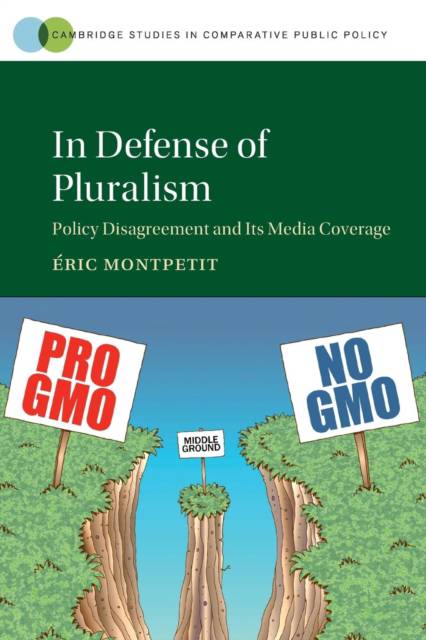
- Afhalen na 1 uur in een winkel met voorraad
- Gratis thuislevering in België vanaf € 30
- Ruim aanbod met 7 miljoen producten
- Afhalen na 1 uur in een winkel met voorraad
- Gratis thuislevering in België vanaf € 30
- Ruim aanbod met 7 miljoen producten
Zoeken
€ 60,95
+ 121 punten
Uitvoering
Omschrijving
The work of early pluralist thinkers, from Arthur Bentley to Robert Dahl, inspired much optimism about democracy. They argued that democracy was functioning well, despite disagreements arising among the diversity of interests represented in policy-making processes. Yet it is unlikely that anyone paying attention to news coverage today would share such optimism. The media portray current policy-making processes as intractably polarized, devoid of any opportunity to move forward and adopt essential policy changes. This book aims to revive our long-lost sense of optimism about policy-making and democracy. Through original research into biotechnology policy-making in North America and Europe, Éric Montpetit shows that the depiction of policy-making offered by early pluralist thinkers is not so far off the present reality. Today's policy decision-making process - complete with disagreement among the participants - is consistent with what might be expected in a pluralist society, in sharp contrast with the negative image projected by the media.
Specificaties
Betrokkenen
- Auteur(s):
- Uitgeverij:
Inhoud
- Aantal bladzijden:
- 220
- Taal:
- Engels
- Reeks:
Eigenschappen
- Productcode (EAN):
- 9781316615768
- Verschijningsdatum:
- 15/04/2016
- Uitvoering:
- Paperback
- Formaat:
- Trade paperback (VS)
- Afmetingen:
- 152 mm x 229 mm
- Gewicht:
- 299 g

Alleen bij Standaard Boekhandel
+ 121 punten op je klantenkaart van Standaard Boekhandel
Beoordelingen
We publiceren alleen reviews die voldoen aan de voorwaarden voor reviews. Bekijk onze voorwaarden voor reviews.











